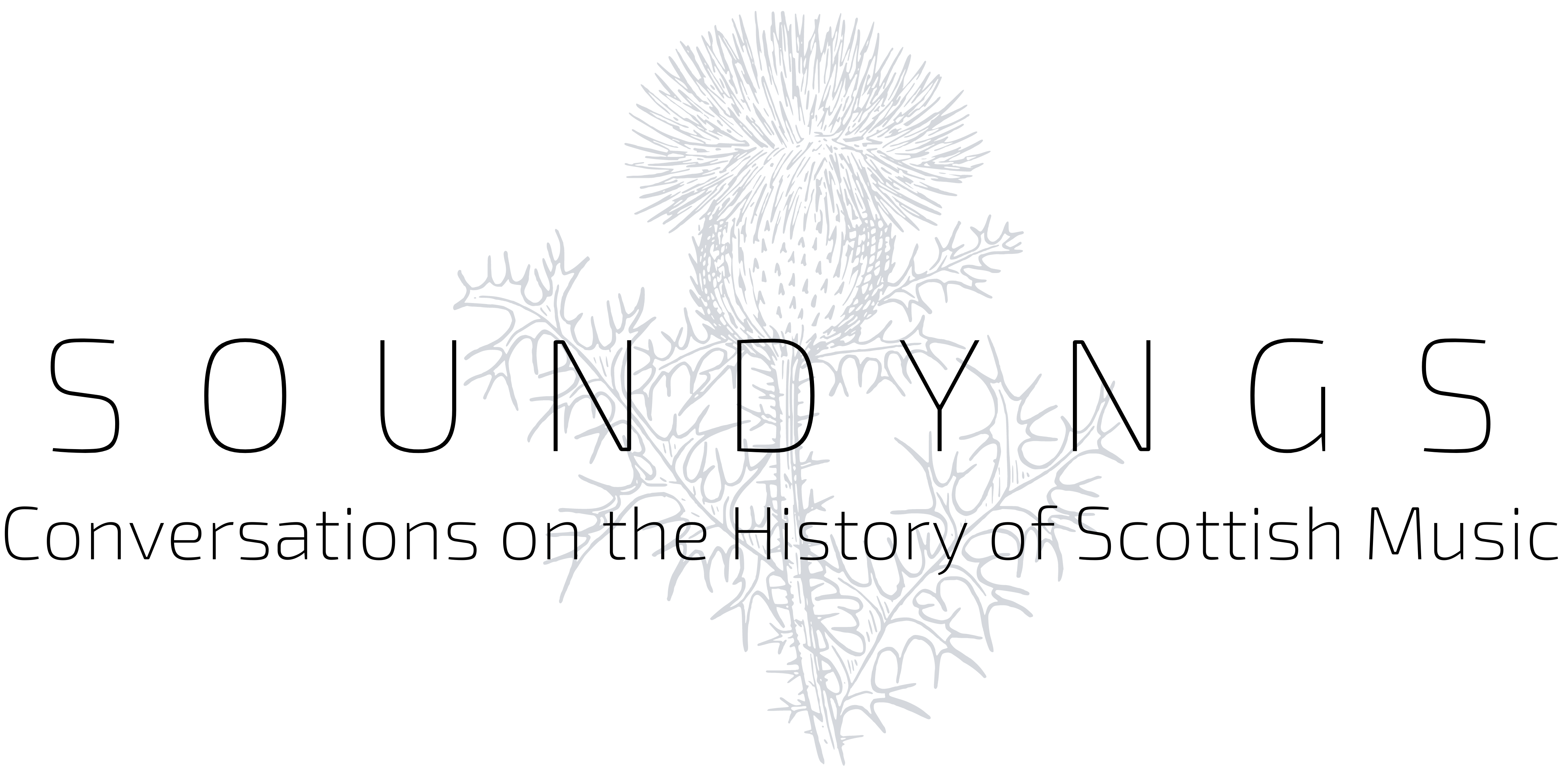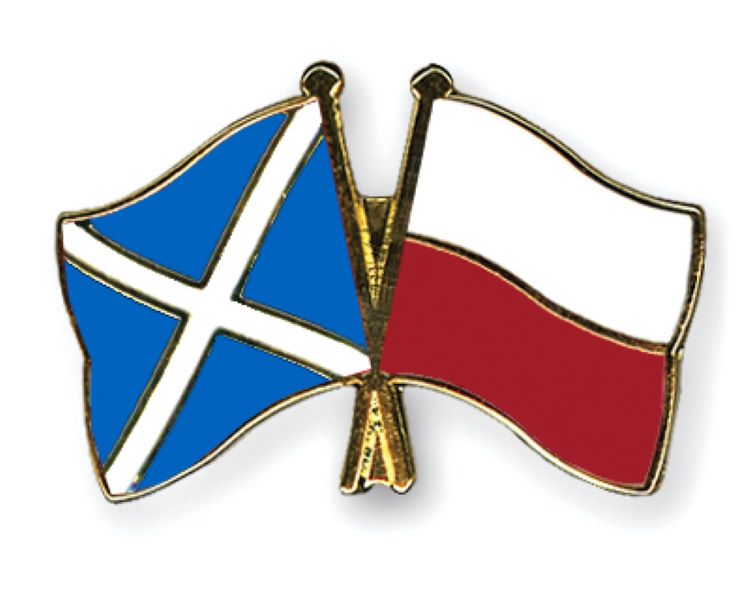This month many of you might be thinking about the latest waves of enforced migration from regions experiencing war and unrest. For Scotland, this has often brought into our lands people with energy and talent. This post celebrates some of the contributions made by Poles (historically defined) who came to Scotland in flight, and whose presence with us gave musical joy and expressed our connection with a wider Europe, highlighted in research writing and events.
Feliz Yaniewicz and the First Edinburgh Festival of 1815
The National Trust’s ‘Georgian House’ property in Edinburgh hosted an interesting exhibition in June to October 2022 on the life of Polish composer and violinist Feliz Yaniewicz. This man, who lived in Edinburgh between 1823 and 1848, was an entrepreneur who launched the first so-called ‘Edinburgh Festival’ more than 130 years before its better known modern equivalent.
Yaniewicz came from Vilnius, which is part of then-Poland which is now-Lithuania. His musical career had seen him travel widely, but he came to Britain specifically following the French revolution, as a refugee. After a time in London, where he managed to establish a musical instrument shop, he came north and settled in Edinburgh. Subscription concerts at Corri’s Rooms on Broughton Street showed there was a local audience appreciative of his talents, and after some years of success in that venue, in partnership with opera singer Angelica Catalani, and helped by money from women such as Christian Dalrymple of Newhailes, Yaniewicz founded the first ‘Edinburgh Musical Festival’ (see Further Reading, Allen, and MacAulay). Running for a week from 31 October 1815, this event linked venues around the city, and featured oratorios, symphonies and chamber music composed by the leading European composers of the age and previous 100 years. Yaniewicz’s direction, and knowledge of the European art music world, was clearly instrumental to the project, which helped to connect Scottish fashionable tastes with the European mainstream. The aftermath of the 1815 Festival saw the foundation of an Edinburgh Institution for the Encouragement of Sacred Music, which aimed to encourage a gradual enrichment of repertoire beyond the then rather austere soundscape of Scottish Sunday worship (Dixon). Yaniewicz continued to lead concerts of chamber music after Natale Corri retired, until 1829, and on his death, was buried in Warrender Cemetery.
The curator of the National Trust of Scotland’s exhibition, Josie Dizon, was a descendent of Yaniewicz and her article in Further Reading relates how she discovered an 1810 square piano associated with Yaniewicz in Wales and was able to bring this north in time for the 2022 exhibition, thanks to donations from the Scottish Polish Association and other Polish expatriates.
Chopin in Scotland
Chopin was a briefer and less happy sojourner in Scotland than Yaniewicz, but like him, arrived in search of peace against a backdrop of unrest in Europe. Both of Chopin’s nations – his birth country of Poland and his adopted country of France – experienced hard times in 1848. In Poland, an unsuccessful revolution attempted to gain independence from Prussia; in France, people took to the streets in search of enhanced political liberties. Chopin came to Britain in 1848 seeking respite from riots and reprisals in his adopted home city of Paris. He was already suffering from the tuberculosis that was to eventually kill him, and, relying on concert and teaching revenue as he travelled to pay his way, was often exhausted and peevish as he moved from host to host in the far north between concerts. A map in Roger Fiske’s book on the European interest in Scottish music shows the various stops in Chopin’s Scottish travels (Fiske, p.117): Chopin’s itinerary was hardly restful.
Two Scottish sisters, Jane Stirling and her elder sibling, the widowed Mrs Kathleen Erskine, were Chopin’s particular supporters in Scotland, and had been the main movers in persuading him to travel to Britain. Jane, who had been taught by Chopin in Paris, additionally harboured deep feelings for her ailing teacher which went far beyond the purely pedagogical (Fiske, p.154). Unfortunately, her habitual psalm reading and meditations on the afterlife were not always received well by the maestro, whose letters often expressed some exasperation with her attentions.
The initial leg of Chopin’s Scottish journey took him to Edinburgh, where he stayed with Lord Torphichen at Calder House (Hadden, p.111). The composer wrote that ‘the air here does not yet agree with me’ despite the kindness of his hosts, who had provided him with two pianos in case he wished to compose or play. Chopin availed himself of the railways to nip to Manchester for a concert (Fiske, p.151) before returning north and further west to Johnstone, the home of coal magnate George Houston. He also travelled for a brief visit to another pupil, Lady Murray, in Strachur House on Loch Fyne (Fiske, p.152), before giving a concert in Glasgow on September 27th. Contemporary reminiscence by an audience member of the Glasgow Merchants’ Hall Concert relates that the audience included both Scottish aristocrats (e.g. the Blantyres) and Polish patriotic exiles such as Prince Czartoryski, an activist for Polish independence (Further Reading, Haddon). Chopin struggled to play with his usual panache, drawing the opinion that his performance had been “less fitted for the concert hall than for the drawing room” (Haddon, p.113). After this event, Chopin retreated to the Stirlings’ family home in Keir, near Bridge of Allan, Perthshire, from whence his letters suggest he languished feeling both ill and rather bored. A concert on October 4th in the Hopetoun Rooms in Edinburgh set ambitiously high ticket prices of 10 shillings and 6d (The Scotsman, Wednesday 4th October, p.1). Audiences were treated to an evening of Chopin’s compositions: Andante and Impromptu, Études, Nocturnes, the Grande Valse Brilliante, and finishing with a set of Preludes, Ballades, Mazurkas and Waltzes: in short, a catalogue of the piano genres this composer had done so much to popularise (The Scotsman).
Chopin left Scotland and eventually found his way back to Paris, where he died a year later. His funeral costs were substantially covered by the Scottish Stirling sisters; Jane wore mourning black for the rest of her life.
Polish Musical Life in Great Britain During the Second World War
A century after Chopin’s somewhat melancholy visit, Scotland became home to Poles fleeing European fascism. Many were fighters. Some were musicians. A study of the Polish exile experience in Britain by Jolanta Guzy-Pasiak discusses the use of concerts both to raise moral in the refugee community, and to raise money for the resistance to fascism. Scotland hosted a Polish Army Choir, founded in 1940 (Guzy-Paziakin, p.151), and conducted by Jerzy Kołaczkowski, who had worked for Polish Radio in Lviv. The choir performed particularly around Glasgow and the West of Scotland. Their repertoire featured music by contemporary and romantic Polish composers, including soldier songs, and “Duncan Gray and other Scottish songs with such perfection of pronunciation as to make respects of their concerts in demand everywhere in Scotland” (according to a 1941 report in the Manchester Guardian, quoted by Guzy-Pasiakin). They also broadcast on the BBC.
We are reminded by these stories that what ‘Poland’ comprises isn’t simple; Chopin may have been born in the centre of modern-day Poland, but Yaniewicz’s birthplace was in modern Lithuania, and for our final example, Lviv is now part of western Ukraine. Wherever our visitors call home, we should be thankful that they encountered such hospitality when they came to Scotland.
Further reading
- Anon, ‘Monsieur Chopin’, in The Scotsman Wednesday 4th October 1948, p.1, advertisement.
- Antonia Laurence Allen, ‘A Lady’s Diary: the first Edinburgh Musical Festival of 1815’, National Trust for Scotland, (2022).
- Josie Dixon, “Felix Yaniewicz: music and migration in Georgian Edinburgh, for the Exhibition Music and Migration in Georgian Edinburgh: The Story of Felix Yaniewicz”, National Trust for Scotland (2022)
- Roger Fiske, Scotland in Music: A European Enthusiasm (Cambridge University Press, 1983). See Chapter 5 ‘Scotland as a reality’, which discusses Mendelssohn, Moscheles and Chopin’s visits to Scotland.
- J Cuthbert Hadden, ‘Mendelssohn, Moscheles, and Chopin, in Scotland’, The Scottish Review, 1882-1920 33 (1899), 94-115
- Jolanta Guzy-Pasiakin, ‘Polish Musical Life in Great Britain During the Second World War’, in Muzyka 64 (2019), (published by the Instytut Sztuki Polskiej Akademii Nauk), 144-153
- Karen McAulay, ‘The First Edinburgh Festival: “Serious and Magnificent Entertainment” or “A Combination of Harmonious and Discordant Notes”? in Brio, 53(1), (2016), 35-46

